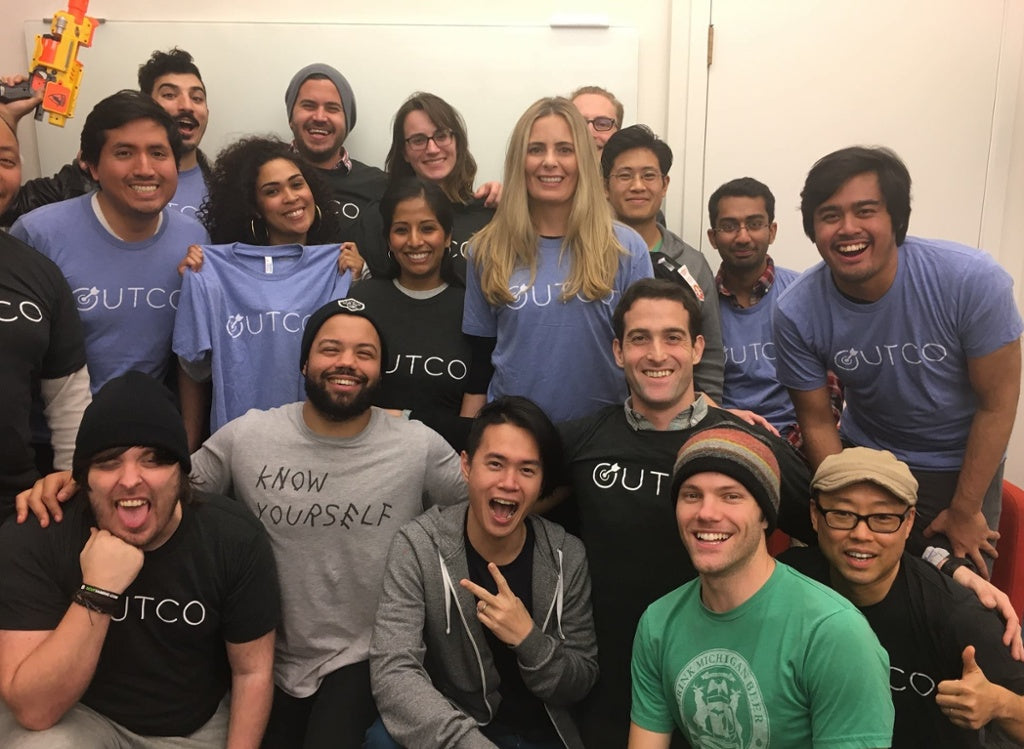Companies Killin’ It: Outco on Changing the Norm in Diversity
Outco is a bit of a black sheep in the Bay Area as a people-centered company in a tech-centered sector. Scalability isn’t as simple as adding a few more servers, as their main focus is around investing in people.
Shop All Standing Desks
What Does Outco Do?
At its core, Outco prepares engineers to get a job in the tech industry. They offer a 5-week program outfitted with personal mentorship and group classes on hard and soft skills such as whiteboarding and clear communication in interviews. Their clients have access to all resources plus one-on-one guidance until they get hired. The cherry on top is that this access is available for life, so should you leave a job after a year, Outco’s staff are there to help you negotiate your salary for the next one.
And there’s something about their product being inherently oriented around cultivating the best in others that has gone hand-in-hand with the organization’s value for diversity, a goal that could arguably use more soft skills in a hard skills-driven sector.
How Did Outco Come to Exist?
Outco is the brainchild of four founders who all graduated from coding boot camps and found little accountability or support during their tech job hunt in the aftermath. Their dissatisfaction with the lack of follow through gave way to the company’s inception, with their name a play on words of “positive outcome”. What had once been an empty promise of timely job attainment by the boot camps is now a quickly growing organization, bootstrapped and now in its second year.

Outco's curriculum, available in San Francisco or online anywhere
How Does Outco Work?
They’re the modern iteration of the axiom "teach a person to fish, and they’ll eat for a lifetime", providing lifelong skills to secure livelihoods for their clients. In the midst of a constant bemoaning of the lack of people of color and women in the tech industry, Outco is providing real tools to create that access and addressing obstacles with viable alternatives. Their value for diversity is evident both internally in the makeup of their staff and externally in how their product affects the industry they’re in.
How is Outco Different?
One of the unique practices that makes Outco stand out is their payment plan, which includes an option that involves $0 upfront and a percentage of a student’s first paycheck once he or she gains employment with the help of Outco. From the beginning, this option has kept Outco accountable and successful in its aim to change people’s lives, eliminating the obstacle of access due to financial constraints as the upfront cost is $5,000. From seasoned engineers or recent bootcamp grads, to enroll, interested clients simply need to apply, which includes an engineering background review and a coding fundamentals check to ensure students can hit the ground running in Outco’s program.
How Important Is Diversity?
In any HR department, “to achieve diversity” or any seemingly appropriate percentage of it in your workforce is a pressing priority, but to view diversity as a one-time task box to be checked off is inherently flawed. In practice, such a goal is turning out to be about embracing a collective journey rather than arriving at a destination.
The prime environment for innovation - gathering different perspectives in a room - is also the prime environment for conflict. One of the main reasons for why there are so many homogenous companies is because it’s easier: similar backgrounds lead to less disagreement or cultural misunderstandings. It’s one thing to get all the people through the door and another to get them to work well with each other once they’re in.
Outco’s staff is straight out of a college catalog: made up of 6 African Americans, 3 East Asian Americans, 1 South Asian American, 1 half Russian/half Indian, and 4 white people; 10 men, 5 women; including full and part-time staff. And as impressive as their roster is, they aren't an exception to this challenge - they're still in the thick of the growing pains of navigating the myriad of communication styles and backgrounds at play.
The difference for Outco, though, is that they valued difference from the very beginning - not as an afterthought or an attempt to hit a quota - and this has been the key to their success in maintaining and thriving with a diverse staff. Below, their CEO Dan Klos shares a few guidelines on how they're practicing it.

Some of the Outco Team, including Founder/CEO Dan Klos
Shop All Standing Desks
1) Make a non-negotiable commitment from the start.
“Big companies try to correct a problem well after they’ve created it. By then, you’ve already created an exclusive culture and so when you get people of color or women in the company, the turnover is pretty fast. One of our first hires was a fellow by the name of Joshua Encarnacion who educated us on the importance of making a strong commitment to making staff diversity a priority in the company. Despite how aware of diversity we thought we were, he taught us to commit to this from the beginning: to an environment that’s welcoming, safe, and allows for people to express themselves in the way they want to,” shares Klos.
2) Create a safe and welcoming environment for people of color.
Should you walk into Outco’s office these days, you’ll hear music playing in the background that was casually turned on by one of the employees, likely “Searching” by A.C. Cool or Childish Gambino’s “Redbone”. Music outside the privacy of headphones is a typically frowned upon practice even in the work/play stylings of most tech companies, but public music is an understanding Outco’s staff have come to as a natural consequence of much trust-building conversation. Other office norms include being open to different communication styles that might be seen as more direct, aggressive even, and attributing to coworkers the benefit of the doubt.
3) Put a person of color in the hiring position.
“If you put people of color in a hiring position, they’ll know how to put language out there that attracts diverse candidates. And after you’ve created a culture and value system that prioritizes different people, you actively select. You decide that no matter what, the next candidate is a woman. And that’s painful for a startup and requires courage, because you’re constantly feeling like you’re about to die,” says Klos.
But it’s consistently worked out for Outco. Though they may pass over a few stellar resumes, the result has been a diverse team seeded with new ways of thinking, mutual learning, and stronger bonds of trust.
Klos adds, “Practically, what it’s come down to is if you set that first screen to prioritize gender or race, you find people who are very qualified. It kind of makes you wonder: if you’re not setting that intention, are you accidentally or passively screening those people out? It wasn’t trivial. Now, I almost don’t believe people who can’t find candidates from different backgrounds.”

Frankly put, Outco’s staff have embraced a new definition of what is professional to them specifically. One could argue that the professional norms that rule the tech sector are very much defined while keeping a young, white man in mind. “Look at Uber. If you’re someone who values growing and challenging yourself, you’re taking the easy way out by not valuing diversity and that’ll bite you in the ass,“ says Klos.
Compromise is inevitable in such contexts, but the conversations involved only lead to more cooperative internal relationships, stronger retention, and a more productive workforce. In a sector that places a high value on efficient solutions and machine-like learning, it turns out that in order to hit the bottom line of increased revenue and keep happy, productive workers, changing the office norm is a good place to start.
Shop All Standing Desks




